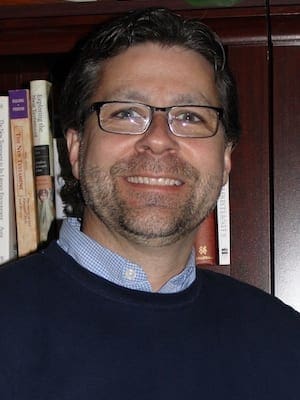Growing up in a fundamentalist Baptist church, I was continually exposed to the well-known practice of preachers, and especially those evangelists, who would annually slip into the town for revival services.
Those revival meetings would offer a time in which we would sing the good old hymns of the church as a warm-up for the hell-and-damnation sermons we would be subjected to later in the service. Horror stories and fear tactics were the modi operandi of these preachers, as they warned the attendees about leaving the service with the chance of dying that very night and spending an eternity in hell.
Lengthy and gut-wrenching invitations were given, pleading to the emotions of those who looked for salvation from what the preacher promised would happen if one did not come to the front and confess one’s sins, through a correct structure of words already prepared for those who would come. The promise to those who did come forward was a place of eternal peace and tranquility when one did die. But to those not coming forward, there was only hopelessness extended to them.
I am sure my story is a familiar one to many, and it is still a story that is lived in many churches and through many well-meaning but misguided Christians, who hold to the medieval idea of the complete depravity of every human being. Many churches are in the business of condemning people and are more focused on making people feel guilty, rather than helping them live out their faith in Christ by loving others.
No one can deny the fact that humans commit sin. The empirical evidence is clear. However, though we do commit sins, and at times some commit terrible sins, the view that people are totally depraved and under the condemnation of a judgmental God should be rethought from a critical approach to the biblical material.
The classic biblical text from which we can begin to rethink this issue is the Genesis story of the creation and fall. While this story is rich with symbolism, we must remind ourselves that this was Israel’s way of theologically explaining how the world came about and why humans do what they do. Starting from their understanding of God as existing with no rival, their monotheism led them to understand God as supremely benevolent and powerful. Thus, the God of Israel is the Creator of all that existed not only because God is powerful enough to create out of nothing, but because God is also benevolent in the act of creation.
God creates humans in God’s own image as a way of sharing God’s being with them. In this way, God enters into a relationship with humans not based on fear and power, but based on covenant love. God does not create those who obey out of fear, nor does God create those whose obedience is involuntary. Rather, God creates humans with free will, and obedience to God is a free choice to obey out of love and trust, not fear.
But the storytellers of Israel must deal with the reality of the human sin that they see in their own world. Sin for them, as it is for us, is not a theoretical concept, but one that is found in the reality of human existence. Thus, as the storyteller tells of the creation of the world from a theological point of view, he must also tell of the origination of human sin from a theological point of view.
If God is perfect and benevolent, and if God creates humans in God’s own image, then God must create those humans as originally perfect and God must give them free choice. Thus the prospect of humans choosing sin is inherent in the act of creation itself, and therefore the creation is a divine risk, a risk that, according to the narrator, went awry.
But there is a question we must ask. Why does God not choose to start over? Certainly, it is because of love that God chooses to remain faithful to the humans God created, refusing to simply scrap them and start afresh. But by not choosing to start over, God holds out the possibility that humans will respond to God’s love through obedience.
In other words, though the symbolic first humans, Adam and Eve, chose to sin, God, by not scrapping the creation, holds out hope that future humans will respond to God’s benevolence through living as God intends for humans to live.
If this is the case, then we may need to rethink the idea that humans are sinful by nature. Yes, humans will continue to choose sin, but the human choice to sin is not in and of itself proof that we are natural born sinners. If it is true that we are born to sin, then how is it that humans can do good?
While we can always point to the evidence of human choices to sin as a way of supporting the argument that humans are sinful by nature, can we not also point to the evidence of human choices to do good as a way of supporting the argument that humans are essentially good by nature?
Although the Genesis narrative tells of Adam and Eve’s choice to sin, it does not necessarily lead us to conclude that we are born with a sin nature. The image of God, the blessings of God’s being and presence, is what is inherent in every person. And though we will continue to sin, God’s image continues to abide in us as that which can lead us to do good.
Drew Smith, an ordained Baptist minister, is director of international programs at Henderson State University in Arkadelphia, Ark. He blogs at Wilderness Preacher.
Assistant Director of the Honors College at Henderson State University in Arkadelphia, Arkansas.

